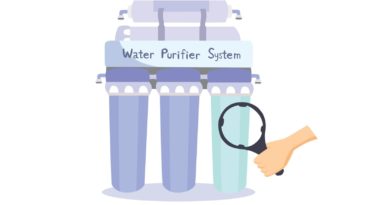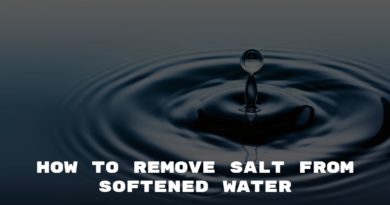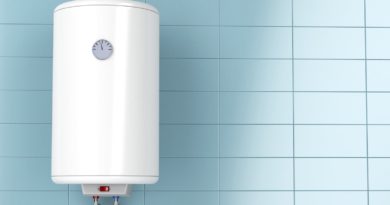Complete Water Heater Buyers Guide
**Articles may contain links that I earn compensation for if clicked and you make a purchase. As an Amazon Associate, I earn from qualifying purchases. These earnings do not actually impact the price of the product or service.
There are many factors to consider when buying a water heater. A water heater can make up a large portion of your utility bills every month, so choosing the right one is important in conserving energy and money. There are many different types of water heaters and it can be hard to navigate the realm of water heaters. This guide helps you determine the differences between each type so you can choose the best one for your needs. We also go over how to install each type to help you through the process once you make your purchase.
Water heaters can be left up to your plumber to decide, but there may be certain features that you value over others. Learning more about your system can help you save money and choose the one that checks all your boxes. Learning how to install and maintain it yourself can also help you save up to hundreds of dollars on installation and maintenance costs. There is a lot to learn about water heaters and we have got you covered in this comprehensive guide.
Table of Contents
A Quick Glance
In this guide we cover a number of different types for any type of system you may choose. We start with the most important choice: electric or gas. We delve deep into the pros and cons of each one and help you decide which choice is better for you. We also go into detail about the different types of water heaters, including traditional tank heaters, tankless heaters, RO systems, and how to install each one. With all these options on the market, it can be incredibly difficult to choose the right one. It is like going into an ice cream store with too many options. You end up choosing the first one you see instead of making an informed decision. We also explore some of the additional accessories to consider to help make the most of your system.
If you want to learn more about your system before committing to a unit, this guide is the one for you. Of course, you can always leave it up to a professional, but you know that you always have your best interest in mind, whereas others may not.
Different Fuel Types
The two main fuel types that power water heater systems are gas and electric. This is usually the big debate. Gas or Electric? There actually isn’t one that is better than the other. They both have their advantages and disadvantages. It all depends on which one you prefer.
Gas
Gas water heaters, like the name, are powered using natural gas. Overall, the monthly costs of operating a gas heater, whether it be a tank or tankless, should be less than an electric unit. This is because the cost of natural gas is less than electricity. So why not gas? Gas water heaters can cost more upfront since they do cost less to run. It also is more difficult to install since natural gas can be dangerous. For those that are unfamiliar with tinkering with gas lines, professional installation may be needed. Those costs should be considered as well when making your choice.
Electric
Electric water heaters are the other alternative and are powered using electricity. They are typically much easier to install and can be more compact than gas heaters. They are also usually more efficient than the gas alternative. The downside to this option is that it takes up a large amount of electricity to operate. This increases the cost of your electricity bill every month, which is not worth it for some people.
Depending on what you value more, you can decide between electric or gas. Usually, homes are equipped with one or the other and most people choose to just go with whatever their home offers. If you do choose to go with a different type than the one you already have, the installation costs will be much more, since the fixtures and components need to be changed.
Different Heater Types
Many different types of water heaters can be suitable for different applications. Depending on your household size and water usage, there may be a system that works for you and not others. Be sure to check out all the different types before making your decision. The main types of water heaters include:
Storage Tank Water Heaters
- Standard features: Tank for water storage, heating coils, drain valves, digital displays, anti-scale technology, warranty, and glass-lined tanks.
- Tank sizes: The tank size can vary from mini to large. Some are for single-use appliances, where some can supply the entire house.
- For families of 1-2 people: 30 gallon capacity
- 2-3: 40-gallon capacity
- 3-4: 50-gallon capacity
- 5+: 80-gallon capacity or more
- POU: 2-19 gallon capacity for single appliances
- Temperature and Pressure relief valves: These are a safety feature that is found on most water heaters. They are used to reduce the temperature and pressure of the tank if it gets too high. This helps the tank not explode.
- Fuel sources
- Electric- higher monthly cost, easier to install
- Gas- higher upfront cost, more complicated to install
- Vent options: atmospheric, direct-vent, power-vent. These help to keep airflow and keep the gas from combusting.
- Tank sizes: The tank size can vary from mini to large. Some are for single-use appliances, where some can supply the entire house.
- Advanced features
- Self-cleaning features help to reduce maintenance and keep the system running smoothly.
- Lowboys (short) vs. tall:
- Tall heaters are best for those that need a larger capacity of hot water and have the room for it. It will take up more space and also needs additional plumbing fixtures.
- Lowboys are better for smaller spaces since they are smaller. They are also more energy-efficient but usually have less hot water capacity.
- Common Use Cases
- Most people will choose a tank water heater since they are less expensive than tankless heater systems. They are also easily used for single-use appliances such as under the sink. Larger home heaters can provide hot water for all your needs.
- Installation basics:
- Make sure your space fits your new system
- For gas heater systems, make sure you check the local ordinances and have a venting system
- The location for installation needs to have a drain nearby
- Pros:
- Lower initial cost compared to tankless systems
- Simpler operation
- Less maintenance and repairs
- Can be easier to install
- Cons:
- High utility bills
- Use more energy in colder weather\occupy more space
- Limited supply of hot water
- Shorter life span
If you choose a traditional Storage Tank Water Heater, check out the Best Tank Water Heaters on the market to help narrow down your choices. It can be quite confusing with the different features they offer and distinguishing between the different models.
We also go over how to install a tank water heater when you are ready to install one in your home. With this, you can save on installation costs and save on maintenance repairs as well.
Heat Pump or Hybrid Hot Water Heaters
This type of water heater moves heat from one place to another. Compared to traditional water heaters, this alternative is more efficient. The heat pump on the system literally pumps heat from the air and pushes it into the tank. This type of pump can also be added to a traditional tank water heater to produce a hybrid hot water heater.
- Standard features:
- Tank for water storage, compressor, expansion valve, heat pump, and electric heating elements.
- Advanced features
- Leak prevention systems
- Wi-fi access can be accessed remotely
- Common use cases
- These have been a common type of heater since they are more efficient and save energy. They are typically used as whole-house systems.
- Basic installation:
- Can usually be put in where the old tank was
- Need to be surrounded by 1,00 cubic feet of air
- Electric is easier to install
- Gas venting requirements may require professional installation
- System may require extra space if a softener is needed
- Pros
- Low operating costs
- Energy savings
- Tax incentives and rebates
- Cons
- High upfront cost
- Higher installation costs
- Air filters need to be cleaned regularly
This type of system is great for those that want to save in the long run. Even though the cost is high at first, the savings you make from conserving energy makes it worthwhile.
Tankless water heater
Tankless water heaters are just like the name suggests. They are a great alternative for those with limited space or need a continuous supply of hot water. These types of water heaters can be used as whole-house systems or as point of use. It really depends on your specific needs
- Standard features:
- Heating coils, pressure relief valve, digital display
- Advanced features:
- Wi-fi compatible
- Basic installation:
- They can be mounted almost anywhere
- Gas systems may have special venting needs
- Installation can be difficult for gas systems
- Leave extra space if a softening system is needed
- Check with local requirements before installing
- Pros
- Compact
- Safer to use
- Continuous supply of hot water
- Cons
- Takes a while to pay for itself
- Sensitive to slow flow
Tankless water systems are simple systems, but it can be hard to figure out which one you should choose. We explore all the different options and features all models have to offer and came up with the Best Tankless Water Heaters on the market. After picking out the right one for you, you may need assistance in installing it.
Check out how to Install a Tankless Water Heater, or do not be afraid to call a professional for help. Some areas actually require it.
One thing that is important to note about tankless water heaters is that they are extremely susceptible to hardness scale, which will reduce the heating capacity of your heater and eventually render it useless. Because of this, I would strongly recommend you consider a water softener or reverse osmosis system.
We list out our top choices for the Best Whole House Water Softeners to help you choose the one that works best for you. We also go over how to install a water softener in your home for when you are ready to install it in your home. Some are more difficult than others to install, so keep this in mind when making your choice.
Another option to filter water in your home are reverse osmosis systems. These systems have different filters and the main RO membrane is covered with molecules to attract impurities. With RO systems, there are also tank systems and tankless systems. There are a wide variety of options to choose from, so we have listed some of the Best RO systems for your home. This way you are not blindly choosing a system for your home. Once you have made your choice we also go over how to install an RO system in your home to assist you in this home improvement project.
Water Heater Accessories
To get the most out of your water heater system, there are a number of different accessories you can get for your convenience. Popular water heater accessories include:
- Expansion Tanks- This accessory is an additional small tank used to handle the excessive pressure in the water tank. This helps to prevent any damage and extend the life of your system.
- Water Leak Detector and Alarm- These accessories are affordable and easy to install. They respond and trigger the alarm that notifies you at any sign of leaking. This allows you to quickly shut off the water supply, or some do it automatically. Leaking can waste a lot of water, cause damage, or even cause serious flooding if not dealt with. These can be great to catch it, since checking the water heater is very infrequent.
- Water Heater Timers- This accessory helps to limit usage, especially during peak hours. Running a heater system for your home can be quite costly. Especially for large families, a timer can help to limit usage and effectively save you money on your utility bills.
- Water Heater Insulation Blanket- This accessory wraps around the tank to help keep your tank warm. When you are not using your hot water, it sits in the tank and can cool down. A blanket can help to reduce some of that heat loss and save you energy in reheating.
- Water Heater Pan- This accessory is often overlooked until there is a leak. It helps to catch water and prevents water damage effectively. It is also extremely affordable and will not hurt to install.
- Water Heater Stand- This is a stand for your water heater tank. It helps to prevent any fires and prevents any combusting from the floor. Many water heaters do not need to be elevated, but this is an extra layer of security.
To maximize the use of your water heater and make sure it is safe to use, accessories are always available.
Conclusion
Choosing and installing a water heater for your home may be a daunting task, but hopefully, this comprehensive guide can relieve some of that pressure. Learning about the different types can make you better equipped to improve your home. Especially with all the different options and new features, it can be hard to figure out which one you need. While most people rely on a professional, it is always great to learn more and try it yourself. Having a quality hot water system will greatly improve your life. No more kids complaining about not having hot water. We wish you luck on your water heater hunting!


